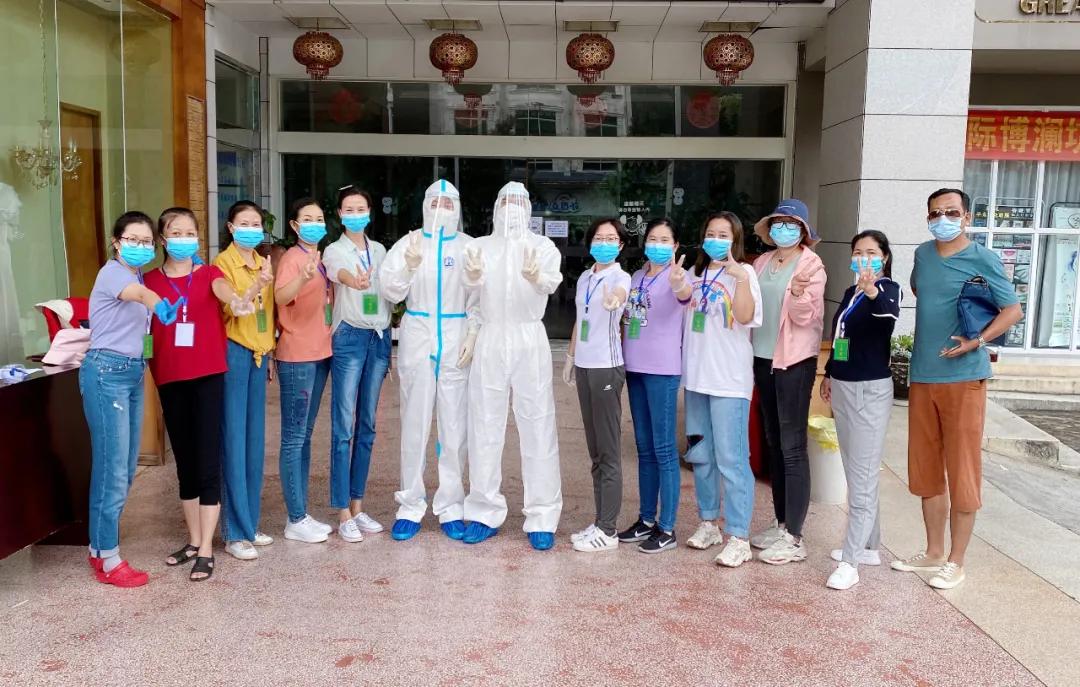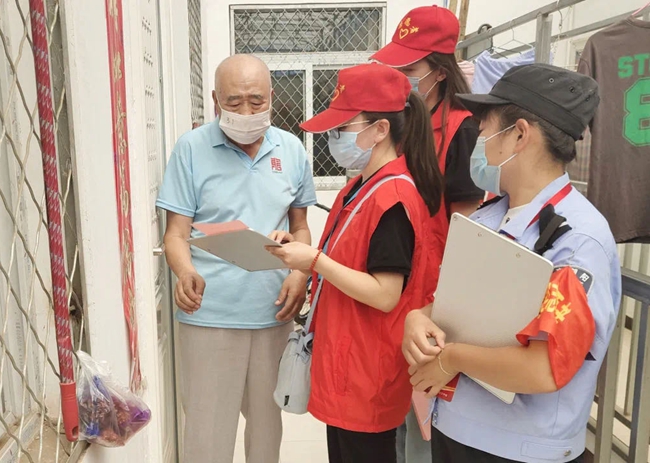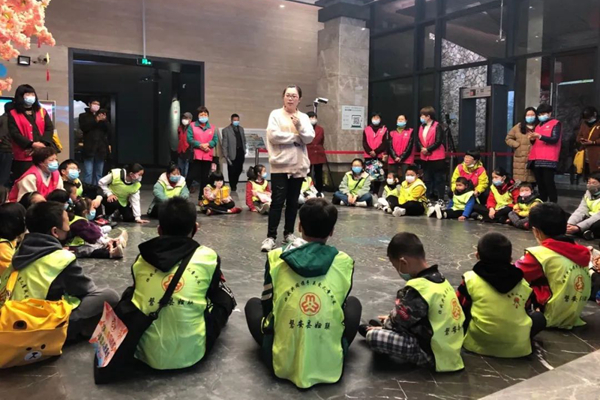
Women's Power at Huoshenshan Hospital's Construction Site
Completed in 10 days, the construction of the Huoshenshan Hospital amazed people with its superfast speed. The 33,900-square meter medical facility is equipped with 1,000 beds and staffed with 1,400 medical professionals.
Over 50 million Internet users witnessed the completion of the project on February 2 in Wuhan, capital city of Central China's Hubei Province and also epicenter of the novel coronavirus outbreak.
It was built by more than 6,000 workers working in two shifts every day, hoping to curb the highly contagious pneumonia as soon as possible. Among them was a group of women workers who skipped their family reunions during the Spring Festival holiday to work at the construction site, drawing worldwide attention as they contributed their efforts to the battle against the virus.
Mei Jun planned to go back to her hometown in East China's Shandong Province before she learned that the construction of a new hospital would begin on January 24. She devoted herself to collecting supplies and arranging vehicles for the project as soon as she was informed of the urgent task and arrived at the site. She constantly worked on the phone for more than six hours a day without any break for a drink of water.
Sun Yanfang, who coordinated the daily necessities and planned anti-virus measures at the construction site, bravely took on the novel coronavirus risk to return to Wuhan from her hometown in Shantou, a city in South China's Guangzhou Province. She drove 16 hours to be back to the epidemic-stricken city.
Sun and her team members renewed masks for the builders every four hours, and they disinfected the construction site, offices and residential areas every day. The builders' diet and safety were her top concern.
Hu Jusheng was a material handler for the project. Although she was heading for her hometown in East China's Anhui Province from Wuhan, she turned round when she was told that there was an urgent demand for material handlers. She joined other workers as soon as she arrived at the site after a three-hour drive on the expressway.
Wang Xiaohong was a core team member for the project's steel structure construction. The 53-year-old woman has been working in the industry for 30-plus years, so her participation boosted her colleagues' confidence. Wang was responsible for planning and coordinating all the aspects of the project, including design, technics and materials.
Fan Wei is a technical expert responsible for communicating with designers about working drawings and organizing relevant workers to make detailed designs. She often commuted among the design institute, the command center and the construction site. She could sleep no more than four hours every day.
Zhang Fen, a member of the resource guarantee team at the construction site, got a terrible cold before she joined the project. Though her husband suggested that she have a rest during the Spring Festival holiday, Zhang did not follow his advice but signed up for the project when she learned about it. During the 10-day period, Zhang needed to work over 12 hours a day to sign contracts and arrange payment with the suppliers.
Han Jianying, a staff member responsible for recruitment and procurement for the project, made about 80 calls every day. There was a shortage of laborers and construction materials at the end of the year because of the festival.
Han understood the builders' fear and anxiety, so she explained the situation to them repeatedly by phone. "What I need to do was to provide all the resources to help the workers come to work — even if I had to pick them up one by one, I would do that," said Han.
Yang Ning, head of the materials delivery team for the project, began to recruit vehicles for essential transport as soon as she was informed of the project, as she knew transport vehicle was the top guarantee for construction resources.
Pan Yanjun, one of the support crew for the project, was busy with arranging the working area, deploying materials, and planning accommodation and transportation for the workers. She needed to make many calls every day. Even though she could sleep no more than five hours a day, she never turned off the mobile phone in case of any emergency during the construction period.
(Source: China Women's News/Translated and edited by Women of China)
- Women Workers and Volunteers Contribute to Citywide Nucleic Acid Test in Qingdao
 Ruili Women's Federation in Yunnan Joins Anti-COVID-19 Epidemic Battle
Ruili Women's Federation in Yunnan Joins Anti-COVID-19 Epidemic Battle Chaoyang Women's Federation in Beijing Makes All-Out Efforts in Fight Against Virus
Chaoyang Women's Federation in Beijing Makes All-Out Efforts in Fight Against Virus- Women's Federations in C China's Hubei Help Women's Enterprises Resume Work
- County Heads, Women's Federations' Presidents Promote Agricultural Products via Livestreaming Shows
 Medic's Stories About Anti-Virus Fight Inspire Left-Behind Children at Women's Federation's Activity
Medic's Stories About Anti-Virus Fight Inspire Left-Behind Children at Women's Federation's Activity

 京公网安备 11010102004314号
京公网安备 11010102004314号